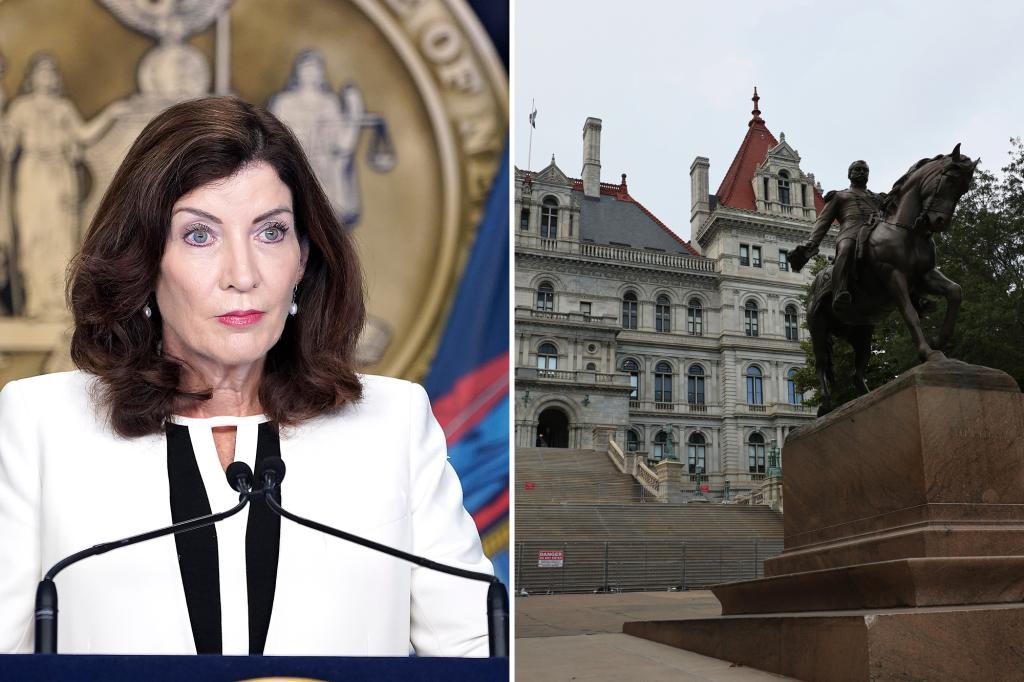State lawmakers are facing challenges as they work to reach a final budget agreement by their April 1 deadline. Negotiations are ongoing regarding potential cuts in education and Medicaid spending, as well as plans to increase affordable housing in the state. While there is doubt that a final agreement will be reached and signed by Governor Kathy Hochul by the deadline, there is hope that a conceptual agreement may be announced by Thursday, with details to be ironed out when lawmakers return to Albany next week.
Governor Hochul’s budget director, Blake Washington, expressed cautious optimism about the progress of the negotiations. Lawmakers and sources close to the discussions are acknowledging the likelihood that the budget will not be completed on time. A rep for the state comptroller’s office emphasized the need for a budget or an extension of current funding streams to be passed before noon next Tuesday to ensure state employees continue to receive pay.
One of the most contentious issues being discussed is Hochul’s proposed changes to the state’s education funding formula, which could result in reduced funding for many school districts. Lawmakers are proposing a $1 million study to consider revising the formula in the future, while also resisting Hochul’s proposals to reduce Medicaid costs by cutting wage boosts for home-health workers. The most challenging aspect of the budget negotiations is likely to revolve around Hochul’s plans to expand affordable housing, including the extension of tax credits for developers and other measures to encourage housing development on state land.
Despite the delays in reaching a final agreement, fiscal experts are urging lawmakers to prioritize fiscal stability, transparency, and meeting the needs of New Yorkers in the budget. The budget should focus on slowing spending growth, rejecting tax increases, and boosting affordable housing. Providing a clear financial plan that outlines costs over multiple years will help the public understand the state’s fiscal future. While the budget may be delayed, experts believe that getting these key aspects right is more important than meeting a strict deadline. Lawmakers are committed to working towards reaching a comprehensive spending plan that addresses the most pressing needs of the state’s residents.


